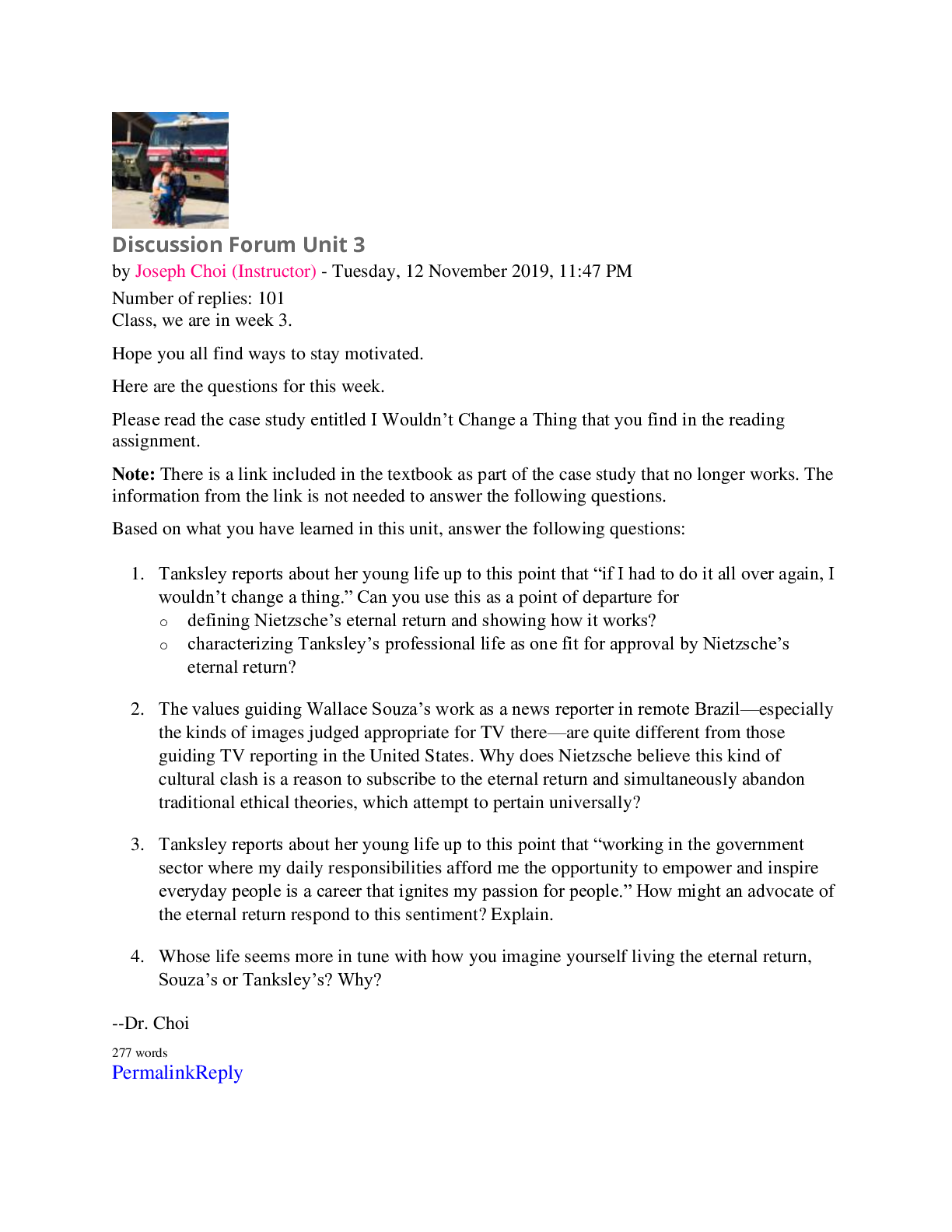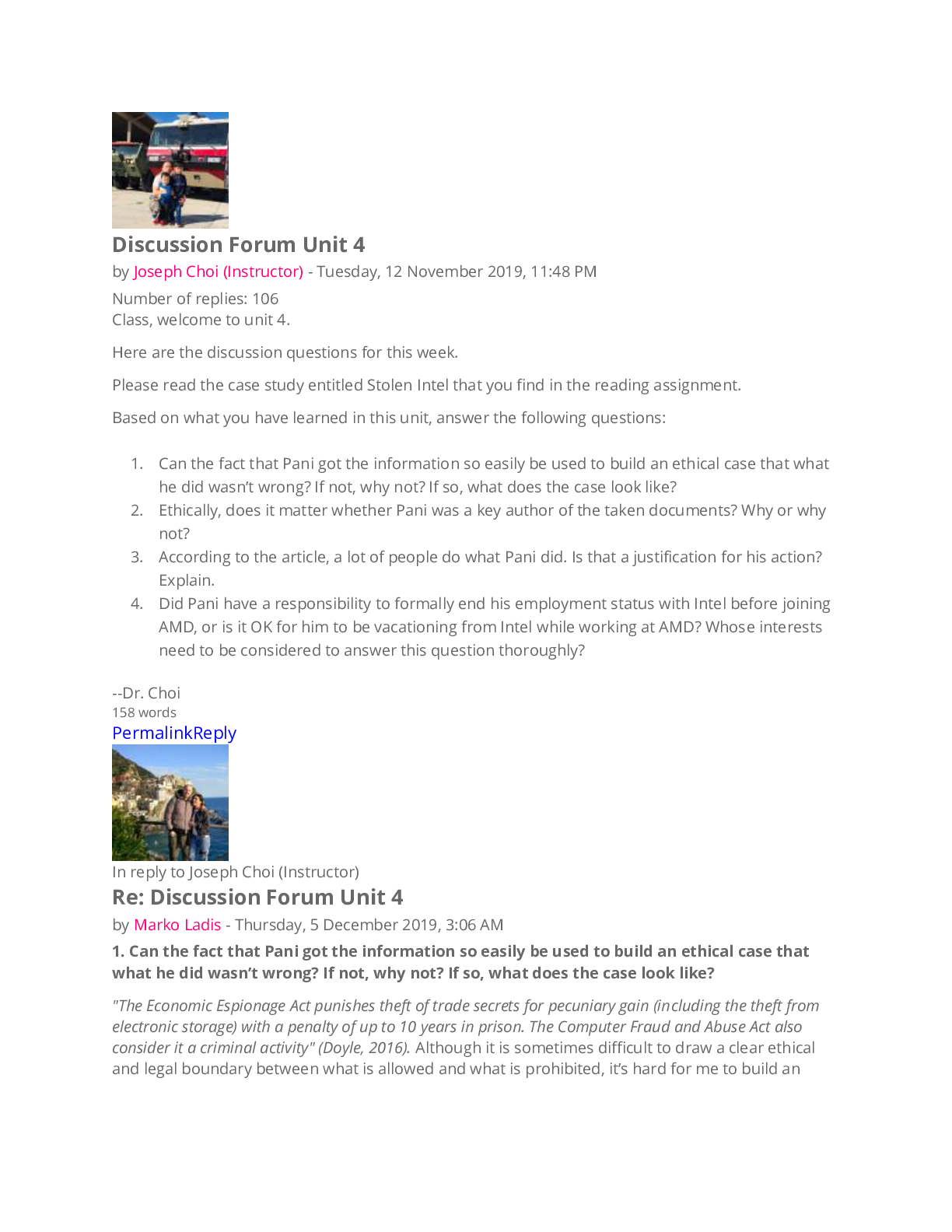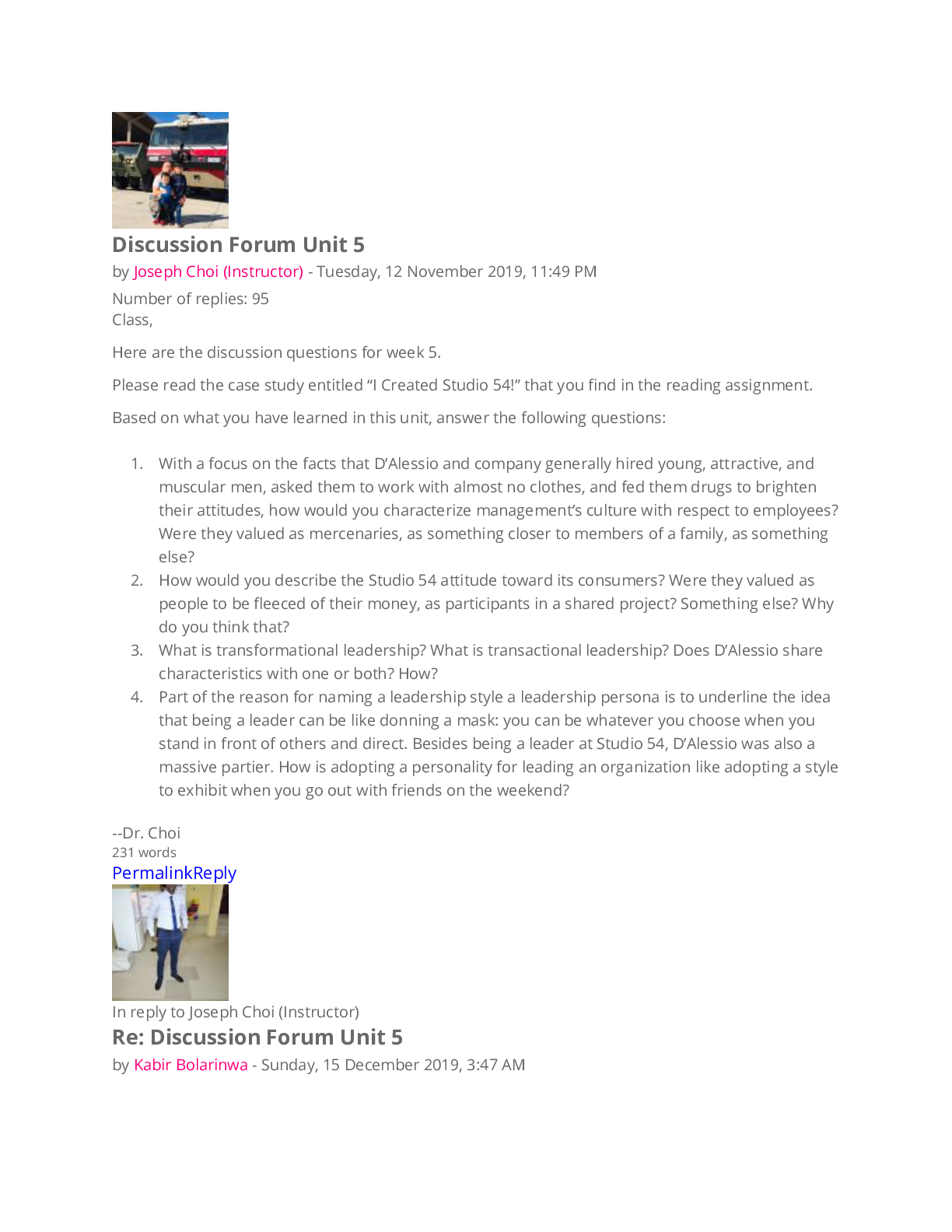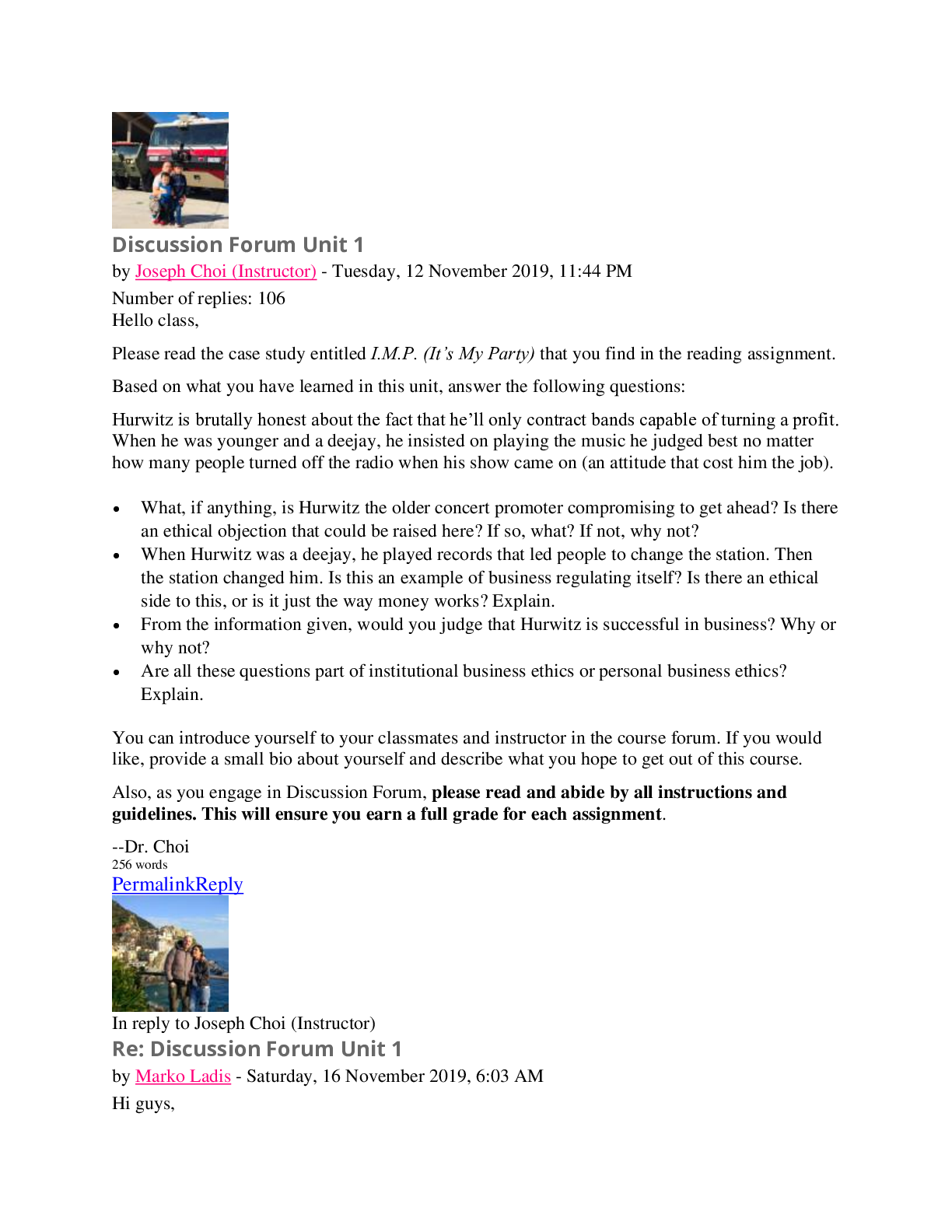Education > DISCUSSION POST > University of the PeopleEDUC 521044. EDUC 5210 Unit 3 Discussion (All)
University of the PeopleEDUC 521044. EDUC 5210 Unit 3 Discussion
Document Content and Description Below
EDUC 5210 Unit 3 Discussion Schunk (2012, Ch. 6) said that "Learning and thinking occur in the context of learners’ beliefs about cognition, which differ as a function of personal, social, and cul... tural factors." I think this quote can be interpreted in various levels. First, every learner has their own way of thinking and views on learning based on their experience and environments. Students are not a "clean slate" or a blank sheet of paper for teachers to write on. Every student has different experience and is influenced by their own family, culture and peers. I think this is agreed by both social cognitive theorist and constructivist. As social learning stressed that "much human learning occurs in a social environment" (Schunk, 2012, Ch. 4, p. 118), it is natural that learners from different social environment will have different beliefs about learning. Constructivist Vygotsky believes that cognitive development varies across culture and is heavily impacted by the environment the children grew up in (McLeod, 2020). This suggests that learning cannot be universally defined that suits everyone. For example, students from a culture of traditional rote learning culture might believe they have learned something if they can memorise and recite it perfectly, while students from a society that accepts challenges to authorities might think that learning is asking questions and debating with teachers. Secondly, Schunk's quote suggest that each learner's own belief about their cognition has an impact on learning and thinking. He explains that "people hold implicit theories about issues, such as how they learn, what contributes to school achievement, and how motivation affects performance" (Schunk, 2012, Ch.6 p.257). Again, this is inline with both social learning and contructivism. Social learning theory used the notion of self efficacy, which is "a belief about what one is capable of doing" (Schunk, 2012, Ch.4 p.146). This belief can be enforced by social interaction, such as when a coach use verbal communication cues like "you can do this". When learners have that belief about what they can achieve, they feel more in control and motivated to learn. Another example borrowed from constructivism is the implicit theory of fixed versus growth mindset. A recent research on Irish Primary school based on constructivism and growth mindset theory shows the impact on students' learning (Shine Thompson, 2020). Thirdly, I think Schunk's quote also implies that the belief of a learner can be altered by changes in social environment, cultural influence and personal situations. This idea is supported by constructivists who believes that learners have pre-existing understanding about certain concepts and it can only be changed if they experience it themselves and are able make sense of it internally. For instance, a student originally believes that different people of different race have innate differences in abilities. It is not enough to change his mind by just telling him that skin color does not determine ability. But if the student moves to a different school with a diverse student community and a different culture, he can interact with different peers and establish a new understanding about race. One common element in all these interpretations is the role of communication. Language is a key part of Vygotsky's description of social interaction (Kurt, 2020). Language is used in almost all social environment and is a tool to learn new knowledge. Social learning theorist also [Show More]
Last updated: 2 years ago
Preview 1 out of 3 pages

Buy this document to get the full access instantly
Instant Download Access after purchase
Buy NowInstant download
We Accept:

Also available in bundle (1)
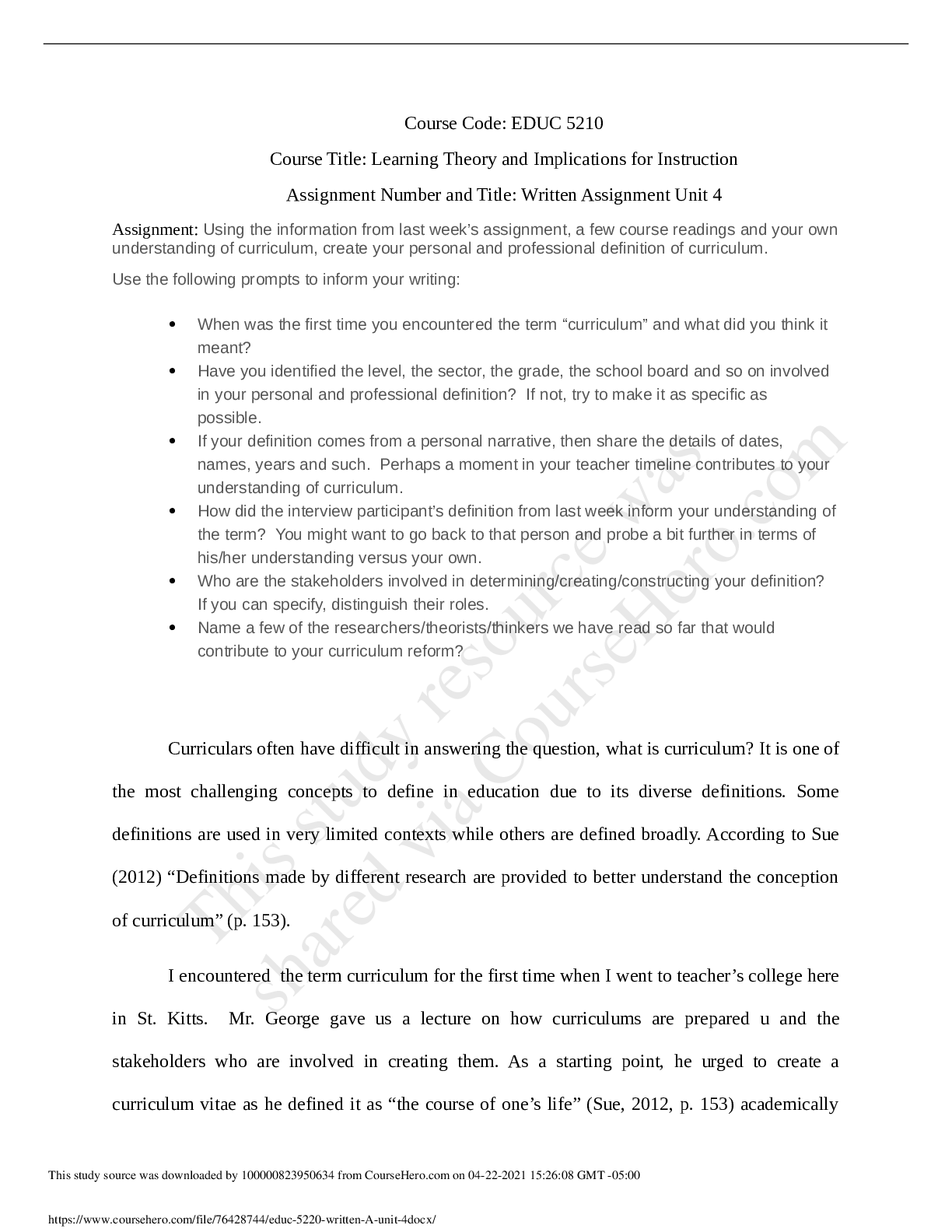
University of the PeopleEDUC 521061. EDUC
University of the PeopleEDUC 521061. EDUC
By Muchiri 4 years ago
$25
10
Reviews( 0 )
$5.00
Can't find what you want? Try our AI powered Search
Document information
Connected school, study & course
About the document
Uploaded On
Apr 22, 2021
Number of pages
3
Written in
Additional information
This document has been written for:
Uploaded
Apr 22, 2021
Downloads
0
Views
242






